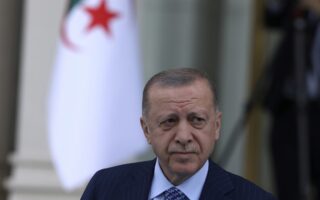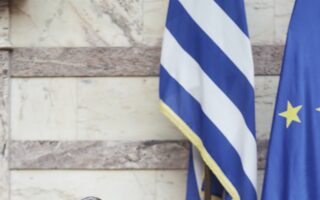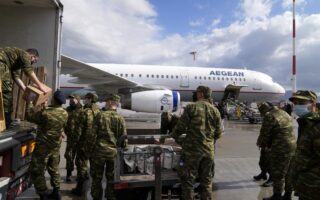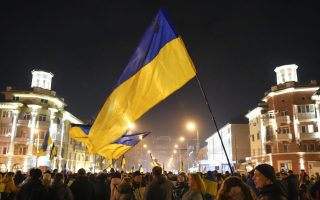Russian-Turkish complementarity
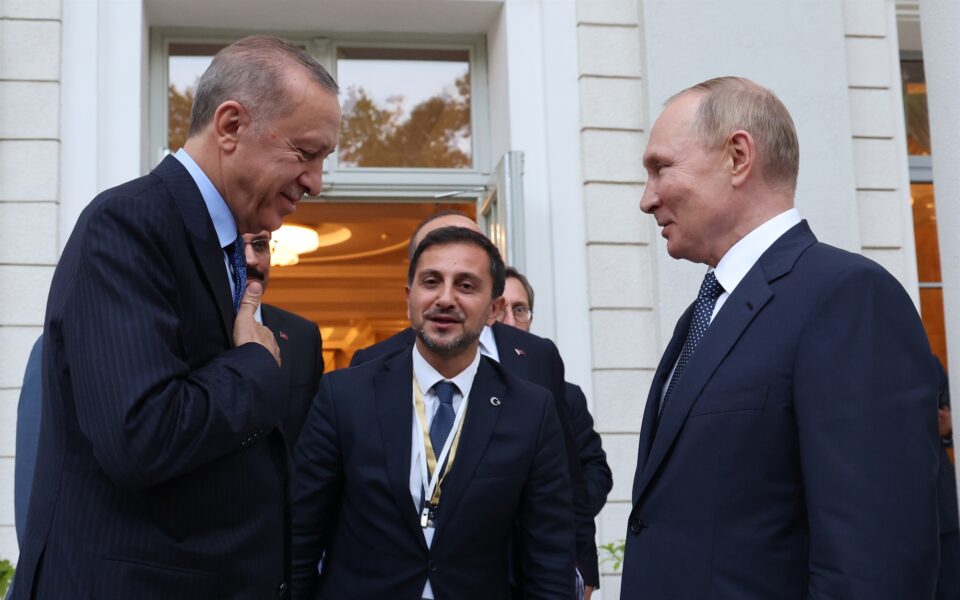
In the international literature, the distinction between the internal and the external scene, as established in 1648 by the Treaty of Westphalia, is increasingly being questioned. Politics and geopolitics are implicated with bidirectional dependencies. Globalization and hybrid forms of warfare are now de facto blurring the boundaries of national sovereignty.
Such an observation is related to the size and importance of each country. Greece, a small but nonetheless geostrategically important country, has long been a typical example of the intertwining of internal and external networks. In modern history, the National Schism and the Civil War can be seen as an “internalization” of international conflicts.
The state of Greek-Turkish relations, as inherited by the present government, was neither favorable nor advantageous. Greece’s poor image abroad and its weaknesses in defense infrastructure encouraged Turkish President Recep Tayyip Erdogan’s efforts to intimidate it in order to promote Ankara’s long-term revisionist plans. The orchestrated refugee influx in Evros, a typical example of hybrid warfare, clearly showed these intentions.
Today things have changed. Greece is supported by its Western allies. It has also made progress in its defense readiness. These achievements, quite understandably, have entailed costs and tensions; for example, Erdogan’s publicly expressed anger after Greek Prime Minister Kyriakos Mitsotakis’ successful visit to Washington, where he implicitly but clearly denounced Turkish revisionism. The Russian political leadership is also expressing anger, albeit less targeted. These two reactions are interconnected. Western solidarity over the Greek-Turkish conflict was largely ensured thanks to the Greek position on the Ukraine issue, the cause of Russia’s wrath.
The convergence of personalized hostility entails serious risks. The bilateral attack on the Greek leadership is the collateral damage of foreign policy choices. Turkey threatens Greece from the outside without much chance of undermining it from the inside. Greek services have been vigilant for decades. Furthermore, no real Turkophilia exists given historical memory and religious differences. Russia has means the Turkish arsenal lacks. Due to the traditional Russophilia among part of the Greek population, the religious proximity, and the multiple ties with the Greek-Russian diaspora, Russia has the networks to influence Greek public opinion. At the same time, it has extensive experience in destabilizing its enemies from within, dating back to the Soviet Union. Possibly, these “technical” advantages were used to overthrow Mario Draghi in Italy.
Greece and its leadership are faced with stakes comparable to those that Prime Minister Eleftherios Venizelos had to address a hundred years ago
Turkey and Russia are mutually complementary if they aim to impose themselves on Greece. Anything one of them does not possess, the other can contribute. Under the Turkish military threat, Russia may hope for a Finlandization of Greece. At the same time, Turkey would benefit greatly if the old balance of power were to resume, possibly through political instability in Greek domestic politics.
In light of this, the question is whether the recent decision for Greece to immediately and clearly side with the West on the Ukraine issue was the right one; that is, whether the danger of combined fronts with the two largest powers in the region should have been weighed. Future developments will ultimately determine this. If political stability is ensured in the immediate and distant future, Greece will have won. Otherwise, the Greek leadership’s choice to ally with the West will have simply postponed the negative developments in Greek-Turkish relations for a while. It is hard to maintain, however, that immediate disaster is preferable to long-term risk.
The world in which we are living is more and more reminiscent of the first decades of the 20th century. Fluidity, insecurity, risks and opportunities create a context that requires leaders to take risks. Greece and its leadership are faced with stakes comparable to those that Prime Minister Eleftherios Venizelos had to address a hundred years ago.
Denying this dangerous reality would mean a certainty of disaster. Accepting reality, however, does not necessarily ensure survival. Much depends on the maturity of peoples, on their ability to avoid the pitfalls of hybrid wars. The tragic experiences of the 20th century taught geopolitical wisdom to previous generations. The “smooth” restoration of democracy by Constantine Karamanlis owes much to this legacy. Today, the digital revolution of information is rendering the stakes extremely challenging.
George Prevelakis is professor of geopolitics at the University of Sorbonne (Paris I).
